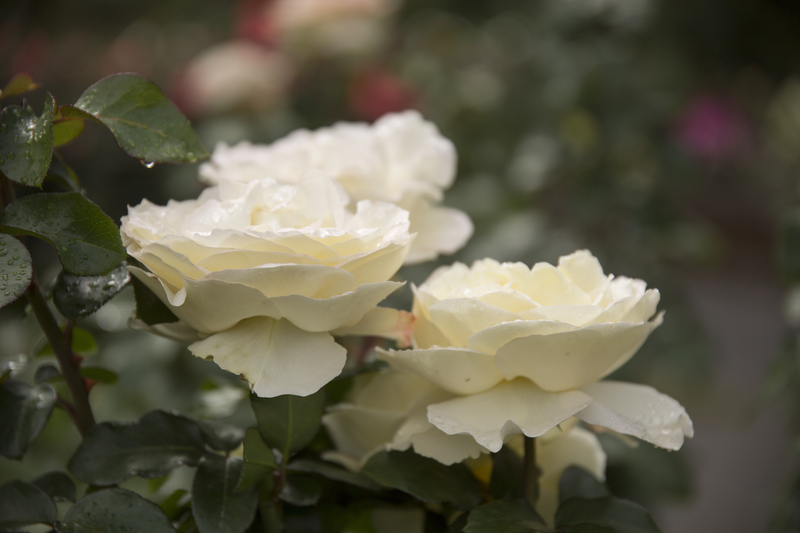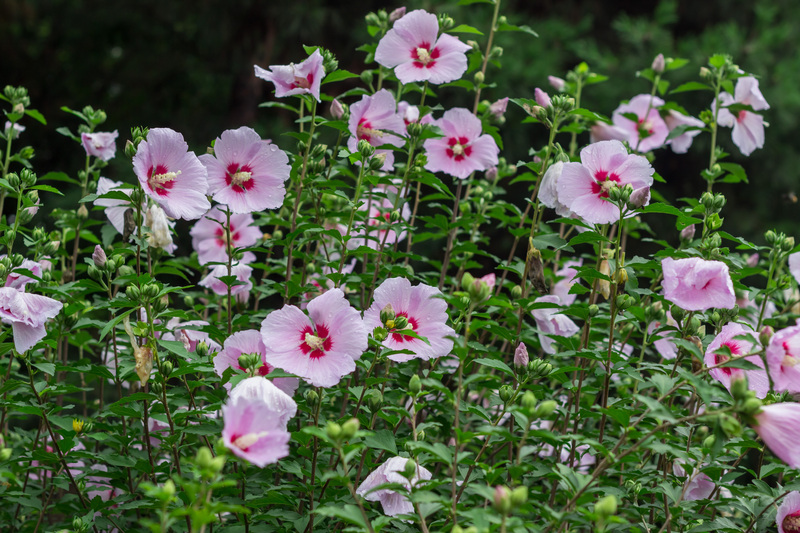Plant the Seeds of Success: 9 Essential Gardening Tips for Beginners
Posted on 27/08/2025
Plant the Seeds of Success: 9 Essential Gardening Tips for Beginners
Gardening is not just a relaxing pastime; it's a doorway to a healthier lifestyle, a more sustainable world, and a bountiful harvest of vibrant flowers and delicious vegetables. If you're a budding gardener or simply considering starting a new hobby, planting the seeds of success begins with the right knowledge. Dive in as we explore 9 essential gardening tips for beginners that will help you transform your outdoor space into a flourishing oasis.
1. Start with Good Soil
Every beautiful and productive garden begins with healthy, nutrient-rich soil. Soil is the foundation of your gardening success, so it's critical to understand what's beneath your feet before planting your first seed.
- Test Your Soil: Use a home soil test kit or consult a local extension office to determine your soil's pH and nutrient levels.
- Amend as Needed: Add organic matter like compost, aged manure, or peat moss to boost soil fertility and texture. This enhances both drainage and moisture retention, two vital keys for plant growth.
- Mulch: Applying mulch helps regulate soil temperature, retain moisture, and suppress weeds, giving your plants a competitive edge.
Remember: The secret to a thriving garden is healthy soil. Invest time in preparing it, and you'll reap the rewards all season long.

2. Choose the Right Plants for Your Region
Selecting plants suited to your local climate and conditions is essential to achieving gardening success. Not all seeds or plants will thrive in every location, so do a little homework before you shop.
- Understand Your USDA Hardiness Zone: This helps you determine which perennials will survive year-round and which are better suited for annual growth.
- Research Sun and Shade Requirements: Some plants crave full sunlight, while others wilt in direct sun and prefer shade. Select plants according to your garden's light conditions.
- Consider Local Pests and Diseases: Choose disease-resistant varietals where possible and avoid plants known to have issues in your region.
Pro Tip: Visit local nurseries or gardening centers for expert recommendations tailored to your area.
3. Plan Before You Plant
Successful beginner gardeners know that foresight pays off. Create a plan before you plant a single seed to maximize space, light, and your harvest's productivity.
- Draw a Garden Map: Sketch your garden layout, grouping plants with similar needs together (e.g., sun lovers, shade seekers, thirsty crops).
- Consider Plant Size: Allow enough room for mature plants to spread and grow.
- Stagger Planting Times: Succession planting ensures a steady harvest rather than a glut all at once.
Remember: Planning avoids overcrowding and ensures each plant gets the resources it needs to flourish.
4. Water Wisely
Gardeners often say, "Water deeply, not frequently." But how and when you water can make all the difference in your plant's health and your garden's yield.
- Develop a Schedule: Most gardens benefit from about 1-2 inches of water per week, but this varies with climate and soil.
- Water Early: Watering in the morning means less evaporation and helps prevent diseases that flourish in moist overnight conditions.
- Focus on the Roots: Apply water at the soil level rather than overhead to ensure moisture reaches the root zone where it's needed most.
Tip: Install soaker hoses or drip irrigation systems for efficient watering.
5. Feed Your Plants Properly
Just as people need a balanced diet, so do plants. Feeding your plants the right nutrients helps them grow strong and vigorous.
- Organic Fertilizers: Compost, bone meal, and fish emulsion release nutrients slowly, improving soil health over time.
- Follow Instructions: Too much fertilizer can "burn" plants or lead to excess leaf growth at the expense of fruit or flowers. Always follow label recommendations.
- Observe Your Plants: Yellow leaves, stunted growth, or poor flowering can signal a lack of nutrients or the wrong fertilizer ratio.
Enriching your soil and feeding wisely are keys to planting the seeds of gardening success.
6. Stay on Top of Weeds
Weeds steal water, nutrients, and sunlight from your plants. Beginner gardeners should make weed control a priority to give their seeds and seedlings the best chance to grow.
- Mulch: As mentioned, mulch prevents many weeds from germinating.
- Weed Regularly: Remove weeds while they're small and before they set seeds. Consistent effort saves time later.
- Hand Tools: Use a hoe, hand fork, or even your hands to uproot weeds without disturbing your desired plants.
Don't let weeds choke your dreams of gardening excellence!
7. Practice Proper Plant Care
Giving each plant the attention it needs means your garden will look and produce its best. Focusing on correct plant care is a core gardening tip for beginners.
- Prune Regularly: Remove dead, diseased, or damaged branches and leaves to stimulate new growth and prevent the spread of diseases.
- Support Tall Plants: Use stakes, cages, or trellises for vegetables like tomatoes or tall flowers to prevent them from flopping over.
- Pest Monitoring: Check regularly for signs of pests such as holes in leaves or sticky residue. Address issues promptly using organic or chemical controls as you prefer.
A healthy garden is the result of ongoing attention and care!
8. Learn as You Grow
One of the biggest secrets to gardening success is simply paying attention and staying curious. Observe your garden every day--plants will tell you what they need.
- Keep a Garden Journal: Track what you plant, when you water, which fertilizers you use, and any pest or disease outbreaks.
- Take Photos: Recording your garden's progress helps you remember what works well in future seasons and celebrate your improvements.
- Connect with Other Gardeners: Join online forums, local clubs, or gardening workshops to learn tips, share advice, and gain inspiration.
The more knowledge you gain, the better your gardening skills will become. Every season brings new lessons!
9. Be Patient and Celebrate Small Successes
Gardening is a journey, not a sprint. Patience is one of the most vital tips for gardening beginners; plants take time to grow, and not every seed will sprout successfully.
- Set Realistic Expectations: Accept that some plants may fail. Learn from these experiences and keep trying.
- Enjoy Every Milestone: Celebrate your first sprout, the first flower, or picking a homegrown tomato. Each achievement is a step toward mastering your garden.
- Keep Experimenting: Try new plants, techniques, and layouts each season. Success comes from experimentation and adaptability.
Your confidence will grow along with your plants!

Beginner Gardening Tips Recap
To plant the seeds of gardening success, embrace these simple but impactful strategies:
- Start with Good Soil - Prioritize soil health for thriving plants.
- Choose Region-Appropriate Plants - Go local for easier growing.
- Plan Ahead - Organization is key to a fruitful garden.
- Water Wisely - Deep and infrequent watering is best.
- Feed Properly - Give your plants the nutrients they crave.
- Weed Diligently - Stay vigilant to keep your garden healthy.
- Care for Your Plants - Prune, support, and protect for maximum growth.
- Continue Learning - Embrace every opportunity to grow as a gardener.
- Practice Patience - Celebrate every success, no matter the size.
Additional Gardening Advice for New Gardeners
If you're determined to make the most of your beginner gardening experience, consider these extra pointers:
- Start Small: Don't try to transform your entire yard overnight. A small raised bed or a collection of containers can be a manageable starting point.
- Use Quality Tools: Invest in a sturdy trowel, gloves, and pruners. Good tools make gardening more enjoyable and efficient.
- Embrace Organic Methods: Composting, crop rotation, and companion planting can boost your garden's natural resilience.
Remember: The path to a lush, thriving garden is paved with curiosity, patience, and a willingness to get your hands dirty. Start now, and by next season, you'll be harvesting the fruits of your labor--and perhaps inspiring others to follow in your green footsteps!
Frequently Asked Questions About Beginner Gardening
What is the best time of year to start a garden?
Most gardeners begin in spring, after the last frost date for their area. However, some crops (like garlic and spinach) do better when planted in fall. Always check the specific needs of your chosen plants.
Can I start a garden if I only have a balcony?
Absolutely! Container gardening is perfect for small spaces. Many herbs, flowers, and even some vegetables like tomatoes or peppers can thrive in pots with adequate sunlight and water.
How much time do I need to dedicate to a beginner's garden?
Even just 15-30 minutes a day can yield a beautiful, productive garden. Consistency is more important than long hours.
Garden Success Starts with a Single Step
If you're ready to plant the seeds of your gardening journey, use these essential gardening tips for beginners to start strong. With a well-grounded approach, patience, and a little effort each week, you'll discover that anyone can grow a successful garden.
Now grab your gloves, pick your seeds, and start planting--the garden of your dreams awaits!

